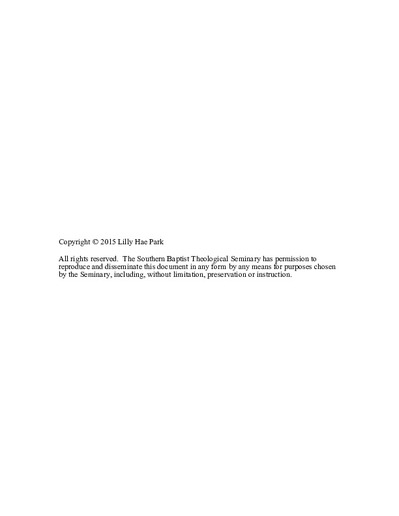| dc.description.abstract | Chapter 1 introduces the significance of theological anthropology in counseling for theological coherency. Specifically, I discuss the anthropological issues of the spiritual nature and sin and their implications for what I call theo-anthropological holism. The epistemology of the three counseling models is summarized to establish background context in examining their anthropology in chapters 2 through 4.
Chapter 2 highlights the anthropological framework of Christian psychology. Specifically, it examines Eric Johnson’s structural anthropological framework and Robert Roberts’ emphasis on virtues for an understanding of their holistic approaches to anthropology. Their views on personal responsibility and sin shapes their understanding of the spiritual nature.
Chapter 3 reveals a distinct form of anthropological dualism between the spiritual and psychological nature in integrationist counseling. The psychological nature is emphasized based on at least three factors: (1) a narrow view of the spiritual nature, (2) a priority on psychological healing, and (3) the view on personal responsibility and sin.
Chapter 4 explains why biblical counselors argue for the sufficiency of Scripture from an anthropological perspective. Based on the biblical view of the heart, biblical counselors view the spiritual and psychological natures as a part of the heart. Their view of the heart also shapes their view of sin and the holistic nature of sanctification.
Chapter 5 evaluates the key anthropological themes from the three counseling models based on the structural, functional, and relational aspects of the image of God. I describe a covenantal schema as a holistic approach that supports theo-anthropological holism. A covenantal schema is appealing for its coherency with theological anthropology and emphasis on a relationship with God for spiritual renewal.
Chapter 6 concludes the dissertation by summarizing my research findings and offering future areas of research. I also present a case study with “Jake”, based on a covenantal schema to highlight key components and contrast it with the other three counseling models. | en_US |

